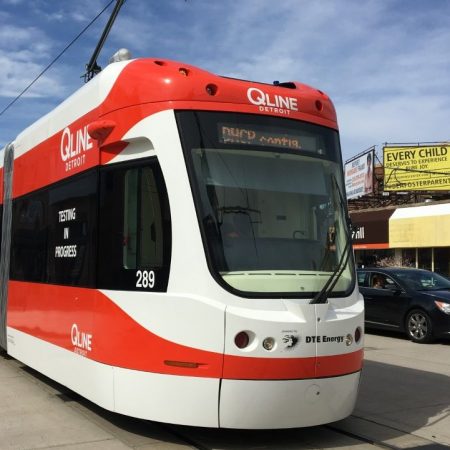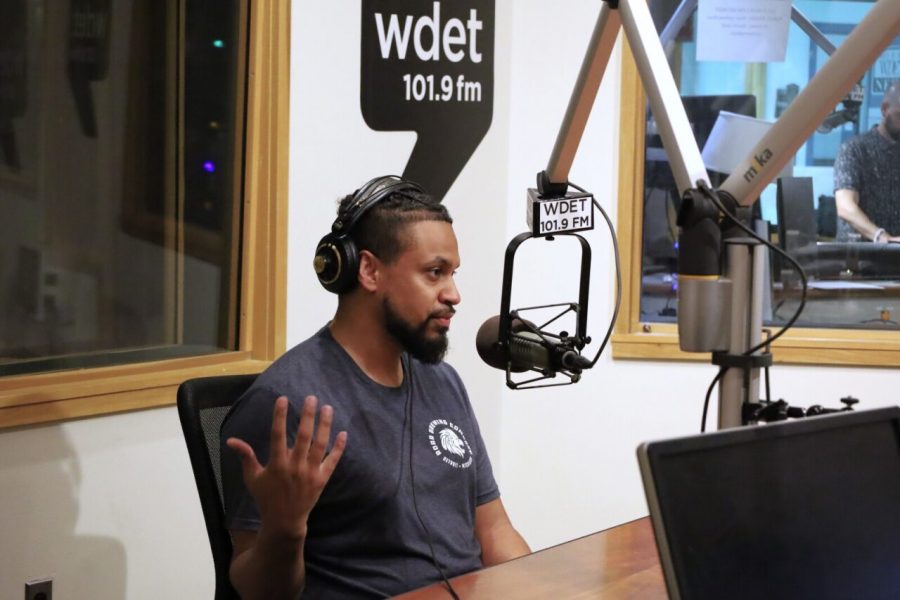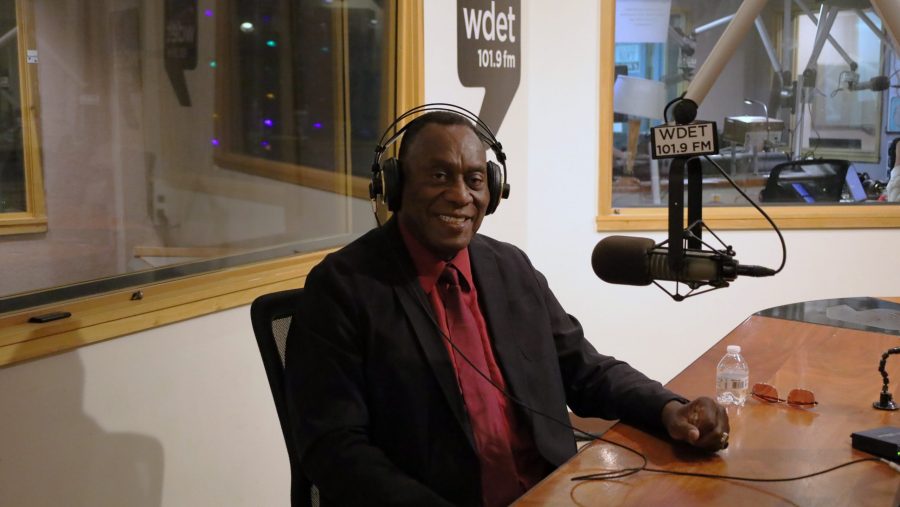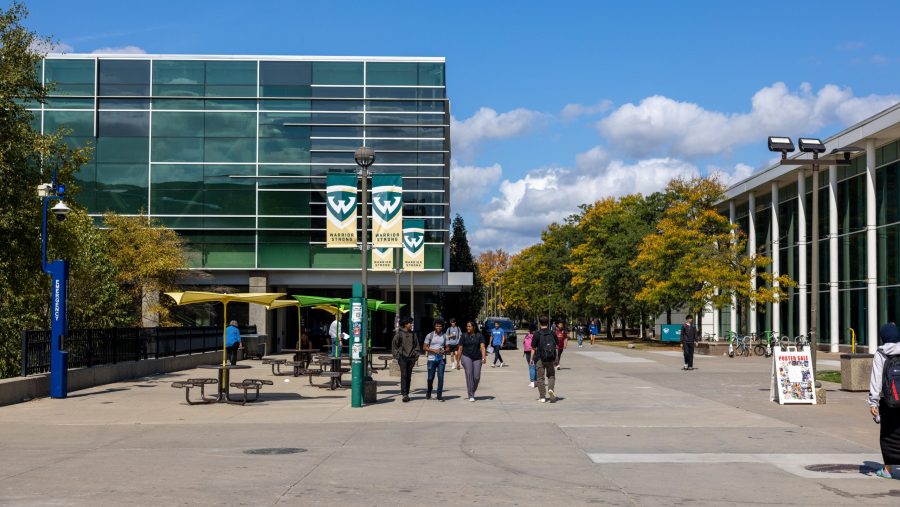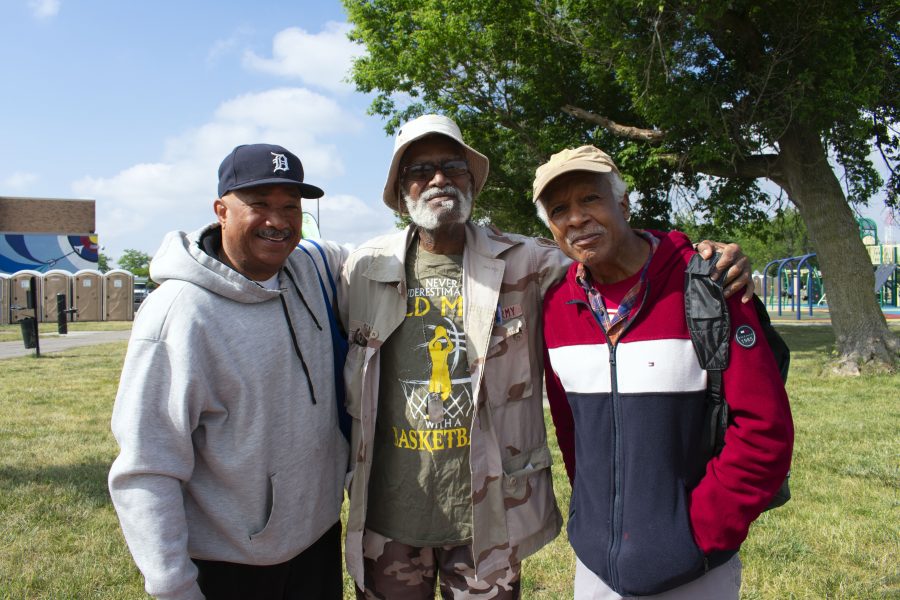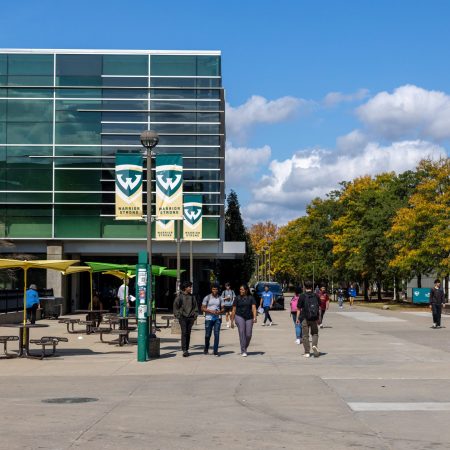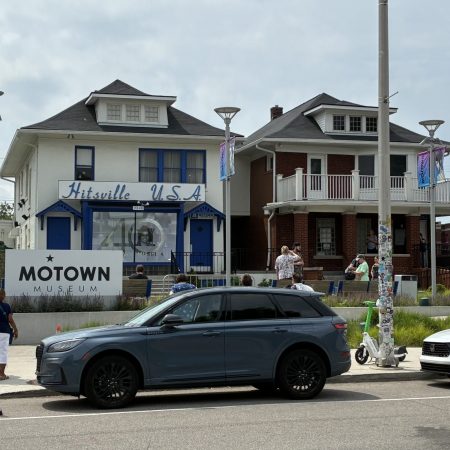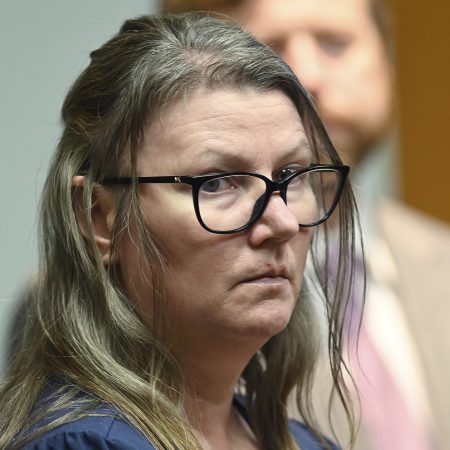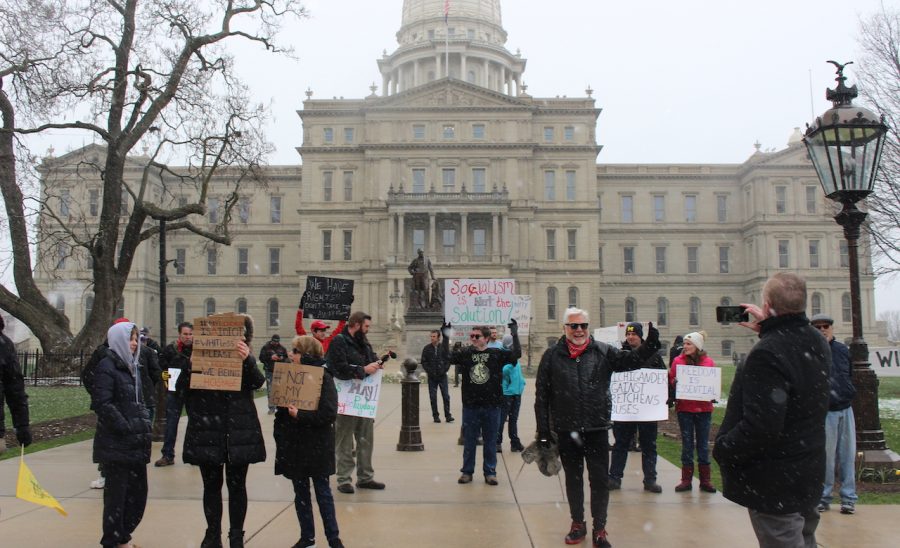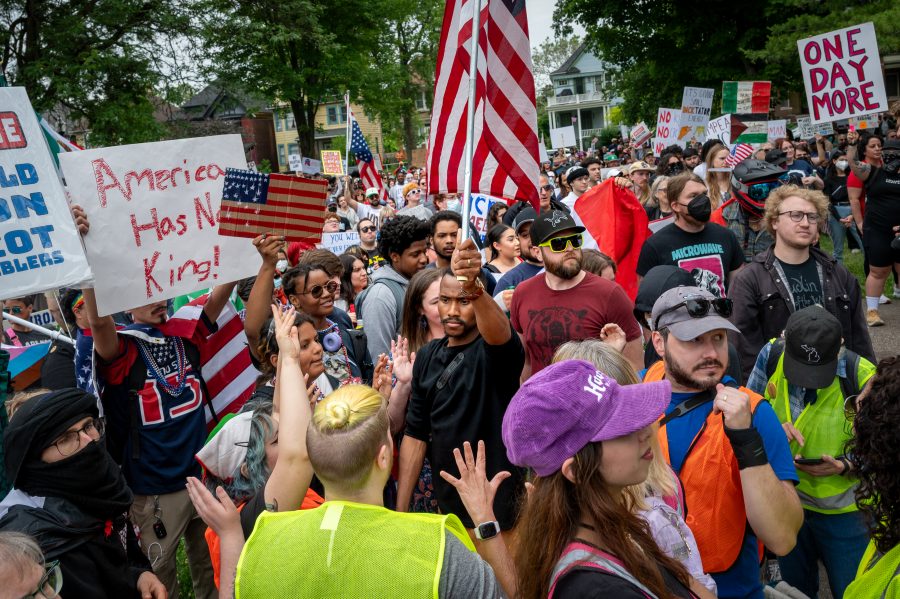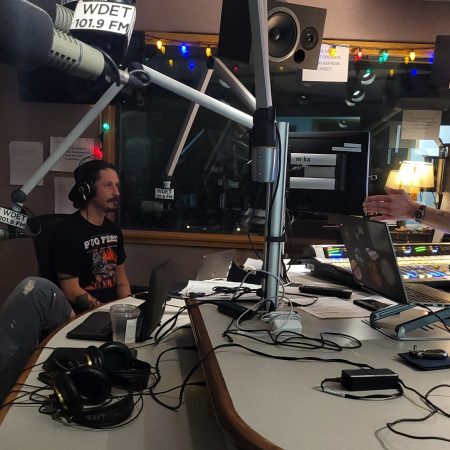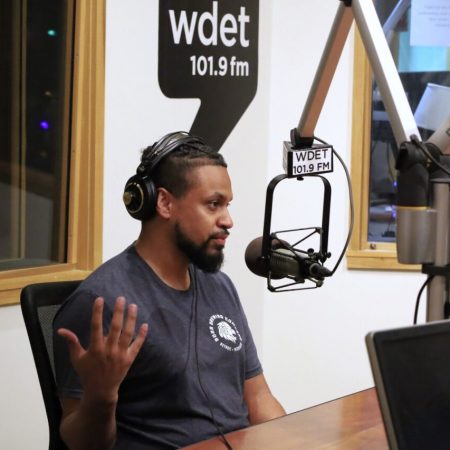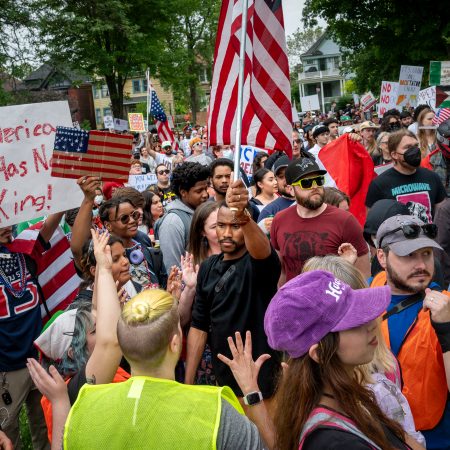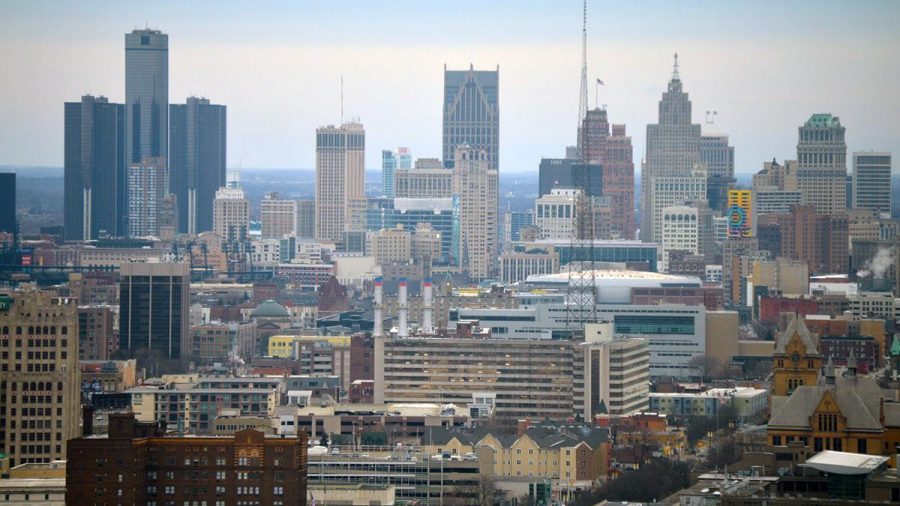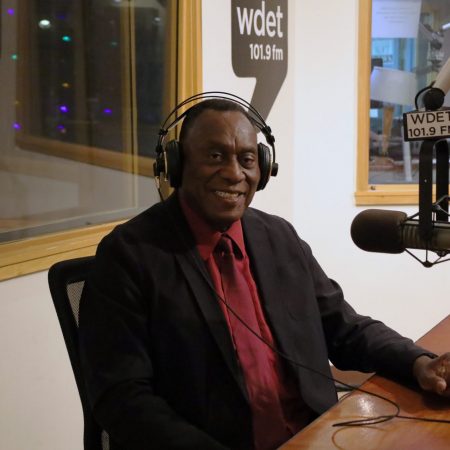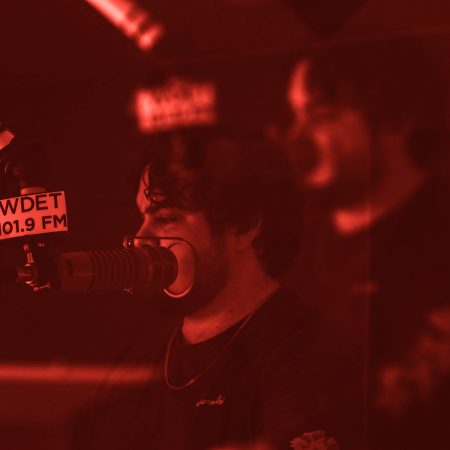Success of Detroit’s QLINE shows potential for mass transit system, advocate says
Metro Detroit’s efforts to create a rapid mass transit system on par with other major regions has often gone off the rails.
WDET explores some of that history in the latest episode of CuriosiD.
But one small slice of the transit puzzle is in place — the QLINE streetcars running along Detroit’s Woodard Avenue.
Former Washington, D.C.-based attorney Jared Fleisher was there at the advent of the QLINE. He’s now the vice president of government affairs for Rock, billionaire Dan Gilbert’s family of companies.
In the interview below, Fleisher told WDET the QLINE is a marker for what Detroit could do with transit and how the region could roll into the future.
The following interview has been edited for clarity and length.
Jared Fleisher: What we did with the QLINE had never been done before. Most major public infrastructure projects are led by public agencies like a transportation agency. Take yourself back to 2009, and in this case it was a ragtag nonprofit group saying, “Detroit is really struggling, economically and from a transit perspective. We want to do something to create a spark. And we, this ragtag nonprofit, wants to tear up Woodward Avenue and put in a streetcar — tear up the main avenue in a major American city.” As you can imagine, the U.S. Department of Transportation had never encountered this circumstance before. Washington had watched metro Detroit, going back to the Carter administration, never really be able to get its act together around transit. And therefore they did not take us very seriously or send money our way. They said, “You don’t even have a regional transit authority (RTA) in Metro Detroit. If you want us to approve the QLINE, which you’re saying is going to be the spark for a regional system, let’s actually create a RTA that could administer it.”
So in 2012, before the QLINE broke ground, we worked together with the governor — and the Feds were big champions of this — to create the RTA. There were literally dozens and dozens of failed attempts over decades to create a regional authority, because of divisions between the different jurisdictions. Fast forward to 2016, and the backers of the QLINE led an effort, with community input, to develop a regional transit plan that would finally fund a regional system. It would have had rapid transit to Pontiac, rapid transit on Michigan Avenue out to Detroit Metro Airport. With support from the Kresge Foundation, Roger Penske, Dan Gilbert and others, it went on the ballot in 2016 and it lost by half-a-percent. And here we are, nine years later, and we still have not solved the issue of regional rapid transit.
Quinn Klinefelter, WDET News: What is the reason these ballot proposals failed? Why has there been opposition to it?
JF: I’ll be very candid with you. One of the realities of our region is that it’s diverse. The closer you are to the urban core, the more supportive of transit you are. But as you get into more rural areas, north Oakland County, north Macomb County, northwest Wayne County, they’re less oriented to transit. When Donald Trump won the election in 2016, he won by turning out a lot of the voters in those communities. And on the Democratic side, Hillary underperformed in the more urbanized areas. So the God’s honest true story about what happened in 2016 is that it was less about transit specifically and more about how the top of the ticket influenced everything on the ballot, including the transit referendum. And when there were attempts to go through the legislature to get it on the ballot in a different form, a narrower, more Coalition of the Willing kind of thing, the legislative majority at that time didn’t want to stick their necks out.
QK: You mentioned the diversity of the region. I’ve heard people bring up racism as an issue in transit. Do you think racism plays any part in all of this?
JF: I don’t think that is the fundamental issue. For example, all of Macomb County votes for SMART, the suburban bus system. And that runs lines in and out of Detroit through Macomb. One of the biggest recent wins for transit, in 2022, was when Oakland County got rid of this “Swiss cheese” thing they had forever, where some communities were part of SMART and others said no to transit. Oakland County voted overwhelmingly for the whole county to be part of SMART. So I don’t think, if you’re trying to look at it analytically, they would say, “We don’t want those people coming here,” as what’s going on. I think the issue with regional transit is whether certain rural voters feel it’s worth it. Do I support investing my tax dollars in this? By the way, for the record, a lot of specialized transit has been developed over the last eight years to meet the needs of rural communities in a more tailored way.
QK: So here we are now, in 2025. What’s your view of where regional transit is in the metro Detroit area? And where do you see the likelihood of it going in the future?
JF: Recently, Wayne County Executive Warren Evans said he was going to try to end the Swiss cheese there, where certain communities opted-out and busses aren’t allowed to travel. They don’t participate in funding the Wayne County part of the network. Warren Evans has said they’re going to go to the ballot, in hopes that Wayne County voters pass it just like Oakland County voters did. So that’s progress. But what it’s not is the kind of modern rapid transit you see in your dynamic cities, your big cities, your great cities.
So, what’s the next step? Should we work together to really focus on one major rapid transit investment? For example, doing rapid transit up Woodward all the way to Pontiac, where Oakland County is investing so much into a new county campus and there’s other investment happening. Should we do one thing that is really, really significant? That comes full circle, right back to the QLINE. It’s successful, exceeding expectations as it carries one million or more people a year. It did its part. And now the question is, if resources become available, do we try to do a newer version of this movie, where we make a significant regional investment with the strategy that we can then use that to try to catalyze something even broader.
Trusted, accurate, up-to-date.
WDET strives to make our journalism accessible to everyone. As a public media institution, we maintain our journalistic integrity through independent support from readers like you. If you value WDET as your source of news, music and conversation, please make a gift today.Donate today »
The post Success of Detroit’s QLINE shows potential for mass transit system, advocate says appeared first on WDET 101.9 FM.
